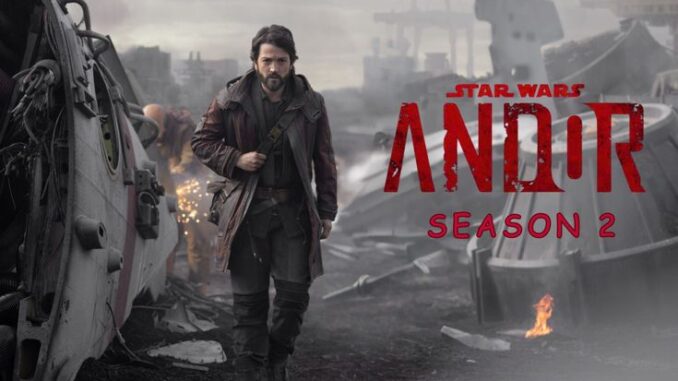
In a galaxy filled with lightsabers, Jedi legends, and galactic wars, Andor Season 2 has done the impossible—it’s become the most talked-about Star Wars series in recent memory. With razor-sharp writing, grounded performances, and a tone unlike anything else in the franchise, fans and critics alike agree: Andor Season 2 isn’t just good—it’s a storytelling masterclass.
A Political Thriller in a Sci-Fi World
While many Star Wars series rely on nostalgia and high-octane action, Andor continues to stand apart. The second season dives even deeper into the murky moral waters of rebellion, espionage, and authoritarian control. The tension is thicker, the stakes higher, and the character arcs more emotionally resonant than ever before.
Diego Luna returns with an even more nuanced performance as Cassian Andor, portraying a man being shaped by conflict, ideology, and survival. This season captures his evolution from reluctant insurgent to hardened rebel leader, bridging the gap between personal struggle and collective resistance.
Critically Acclaimed Writing and Direction
The creative team, led by Tony Gilroy, has doubled down on the show’s signature approach: sharp dialogue, slow-burn tension, and gritty realism. Season 2 doesn’t rely on fan service or Force-fueled cameos to engage its audience. Instead, it continues to earn its praise through rich storytelling and political depth.
Each episode builds upon a layered narrative that feels more like prestige television than a typical franchise installment. Comparisons to shows like The Wire and House of Cards are increasingly common—and justified.
New Characters, Bigger Risks
Season 2 introduces a wave of compelling new characters—both from within the Rebellion and the Empire—each with complex motivations and arcs. Some become allies, others betrayers, and many operate in the grey zones that define the show’s mature tone.
Fans are praising not only the performances, but also the moral ambiguity that the series so deftly handles. One standout character—a disillusioned Imperial intelligence officer—has already become a fan favorite for challenging audience assumptions about loyalty and redemption.
A Star Wars Show With Real-World Parallels
What makes Andor particularly gripping is how it echoes real-world themes: surveillance, oppression, propaganda, and grassroots resistance. The second season doubles down on these themes, refusing to simplify its message or villainize without nuance.
It’s not just good for a Star Wars show—it’s good television, period.
Fan Reactions: "This Is Peak Star Wars"
Online, the response has been overwhelming. Hashtags like #AndorS2 and #PeakStarWars are trending after each new episode. Fan forums are lit up with detailed analyses of scenes, quotes, and political allegories. Reddit threads have reached thousands of upvotes dissecting individual lines of dialogue and plot decisions.
“This is the Star Wars I’ve been waiting for my whole life,” one fan wrote on Twitter. “No lightsabers, no Skywalkers—just raw, intelligent rebellion.”
Even casual viewers are finding themselves pulled into the narrative, binging the first season just to keep up with the momentum of the second.
A Defining Moment for Star Wars Television
With Season 2, Andor has carved out a distinct identity in a franchise that’s often defined by nostalgia. It proves that Star Wars doesn’t need to rely on the past to thrive—it can tell powerful new stories with depth, darkness, and heart.
Whether you’re a lifelong fan or just love well-made TV, Andor Season 2 is a must-watch. And if the current trajectory is any indication, we’ll be talking about it long after the season ends.
Leave a Reply